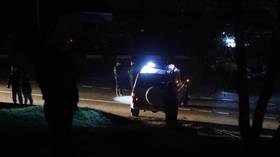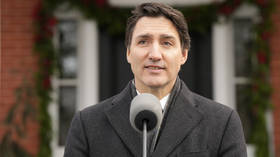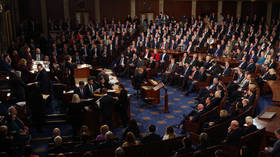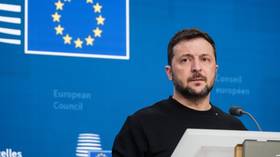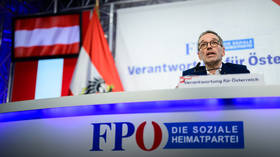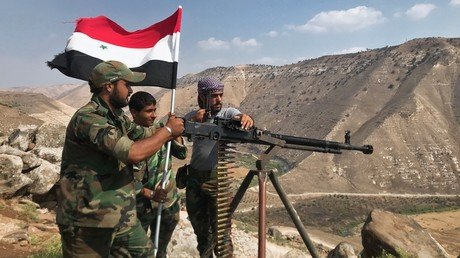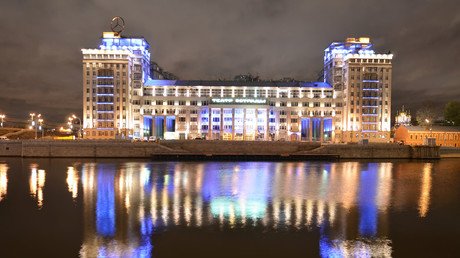Legendary Russian singer Iosif Kobzon dies aged 80
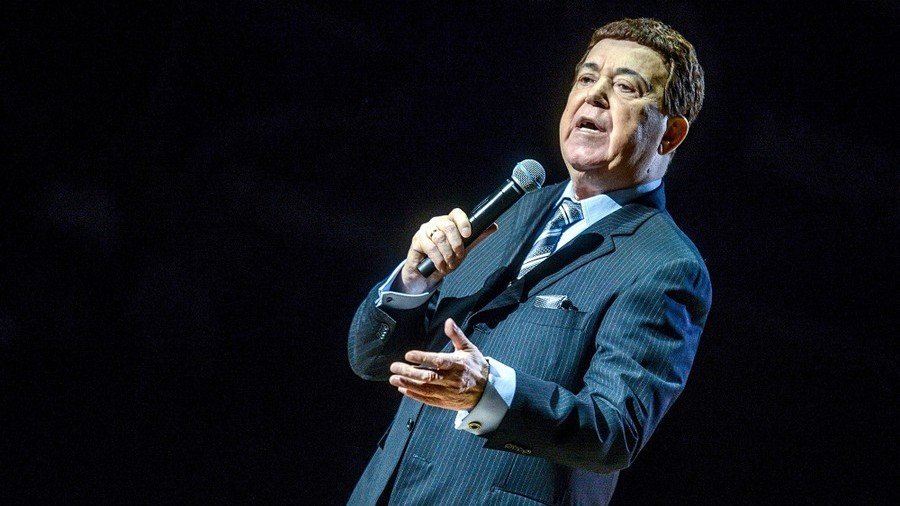
Renowned Russian singer Iosif Kobzon, who was sometimes compared to Frank Sinatra and was famous for his crooner style, has passed way at the age of 80. Kobzon was the most decorated performer in the country’s history.
His grieving widow, Nenel, is currently unable to comment because “we all are crying,” Kobzon’s assistant told TASS news agency, as he confirmed the death of the legend of the Soviet and Russian stage.
Kobzon, who was also a deputy head of the State Duma’s Culture Committee, had been battling cancer for years.
Born in the then-Soviet Ukrainian city Chasov Yar in 1937, the performer demonstrated his talent from early childhood. After winning multiple singing contests he once performed in front of Joseph Stalin, as well other Soviet leaders, including Nikita Khrushchev and Leonid Brezhnev. He gained enormous popularity after he sang several soundtracks for famous Soviet spy TV series Seventeen Moments of Spring.
One of his early hits that won over the hearts of the Soviet people was the composition ‘In Our Courtyard,’ about a fairly ordinary city girl who nonetheless caught the eye of a young man, who cannot stop looking at her.
Why didn’t the ‘Russian Frank Sinatra’ get to sing with the real one?
The singer was sometimes known as the “Russian Frank Sinatra,” and his talent was compared with that of the American legend. On one occasion, he almost shared a stage with Sinatra. During one of Kobzon’s trips to the US, Sinatra’s impresario contacted the young singer, asking if he could arrange a concert for him in the USSR. This required an invitation from the leader of the country, Mikhail Gorbachev. Gorbachev was initially reluctant, but Kobzon managed to persuade him to send the invitation.
However, as Kobzon recalled in his book, Sinatra also revealed a long list of celebrity conditions. He wanted a red carpet upon disembarking his plane, he sought to hold a single concert in Moscow’s Red Square, and he wanted Gorbachev and his spouse to sit in the front row. Kobzon wasn’t happy with this attitude, but accepted the conditions and the invitation was handed over.
The concert was ultimately doomed, however. Sinatra had an enormous collection of invitations from kings, presidents and other high-level officials, and wanted one from the Soviet Union. There was one small problem – Sinatra said the letter should have been handwritten, not typed, and Sinatra’s impresario said that Gorbachev must send it.
That’s when Kobzon finally took serious offence.
“F**k your touring artist, we sing quite well ourselves,” he told Sinatra’s representative.
The hero singer of Chernobyl
After an explosion rocked the Chernobyl nuclear power plant in 1986, causing a catastrophic leak, Kobzon was one of the first to head to the site to support those who battled the consequences. It was his personal decision to travel to the area just two months after the blast, which released 400 times more radioactive material than the atomic bomb that was dropped on Hiroshima.
“I had three solo concerts in one day. I would sing non-stop for two hours and the spectators did not let me go,” he said.
Kobzon recalled that he saw the reactor with his own eyes, as he performed just two kilometers away from it. All the people in the area were wearing special protective masks at that time, but Kobzon couldn’t as it would not have let him sing. When locals came to the concerts and saw the artist, they took off their masks in solidarity and he could not persuade them to put them back on.



